Biologics Gene and Cell Therapy
Biologics Services
 Services & Solutions
/
CMC-Product Development & Manufacturing
/
Biologics Cell & Gene Therapy
/
Biologics Services
Services & Solutions
/
CMC-Product Development & Manufacturing
/
Biologics Cell & Gene Therapy
/
Biologics Services
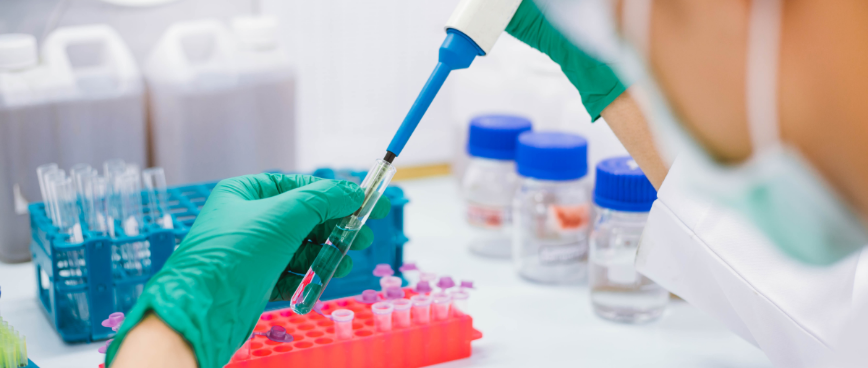
Biologics Analytical Testing Services
Due to its biological origin and its susceptibility to degradation during manufacturing and storage, biologics are typically highly heterogeneous. For this reason, biologics development demands extensive characterization and stringent quality control with orthogonal methodology to ensure biologics consistency in safety, identity, strength, purity, and quality as outlined in guidelines, such as ICH Q5C and ICH 6B.
Frontage CMC Biologics & Analytical team is experienced in supporting projects in various phases from candidate selection to commercial product. The biopharmaceutical modalities this team worked on include:
Biologics We Support
- Fusion Protein
- mAb
- Antibody Drug Conjugate
- Pegylated Protein
- Therapeutic Peptide
- Tissue Regeneration Medical Device
- Vaccine
- Polysaccharide
A Comprehensive Suite of Analytical Services
In addition, our highly technical team is versatile in developing methodology for your specific project needs.
- Method Development
- Method Transfer / Verification / Qualification / Validation
- Developability Assessment
- Reference Standard Characterization
- Comparability Study/Analytical Similarity
- Biologics Impurity Characterization
- Process/Formulation Development Support
- Release Testing
- Stability Study
Technical Platforms
Frontage offers five technical platforms to support your biologics development needs in product characterization and quality control for total quality assurance.
- Biophysical Characterization
- U/HPLC
- Mass Spectrometry
- CE/cIEF/CE-SDS
- SEC-MALS
- SPR
- AUC
- DLS
- LO/MFI
- Immunology
- ELISA/EIA/MSD
- Flow Cytometry
- Molecular Biology
- qPCR/ddPCR
- NGS Sequencing
- Cell Biology
- Cell-based Potency Assay
- Effector-mediated Cell Cytotoxicity
- Internal MCB/WCB Maintenance (R&D)
- Cell Line Expansion (R&D)
- Microbiology
- Endotox
- Bioburden
- Mycoplasma
- Sterility
Characterization Methods
- Amino Acid Composition (Amino Acid Analysis)
- LC/MS for Intact Mass, Subunit Mass Determination
- Peptide Mapping
- Amino Acid Sequence Confirmation
- N- and C-terminal Sequencing
- Post-translational Modification Identification
- Sequence Variant Determination
- Conjugation Site Determination
- Disulfide Linkage Confirmation and Identification
- Free Thiol Location
- HIC or LC/MS for Drug to Antibody Ratio Determination
- LC/MS for Glycan and Glycosylation Site Identification
- LC/MS for Residual Impurity Characterization
- cIEF and IEX for Charge Variant Profiling
- CE-SDS and SEC-MALS for Aggregation Determination
- AUC and DLS for Aggregation Determination
GMP QC Methods
- Appearance (USP<1>)
- pH (USP<791>)
- Osmolarity (USP<785>)
- Subvisible Particles (USP<788>)
- Identity (ciEF, Peptide Mapping, ELISA, and SPR)
- Protein Concentration (A280)
- Potency (ELISA, Cell-based Assay)
- Product Purity and Impurity (cIEF, IEX-HPLC, RP-HPLC, HILIC, CE-SDS, SEC, and HIC)
- Glycan Profiling (HILIC, HILIC/MS)
- Extinction Coefficient Determination (Amino Acid Analysis)
- Surfactants (LC, LC/MS)
- Process Related Impurities
- Host Cell Proteins (ELISA)
- Host Cell DNA (qPCR, ddPCR)
- Protein A (ELISA)
- Cell Culture Medium Components (LC, LC/MS)
- Safety
- Bioburden (USP<61>)
- Endotoxin (USP<85>)
- Sterility (USP<71>)
- Mycoplasma (USP<63>)
Resources To Consider

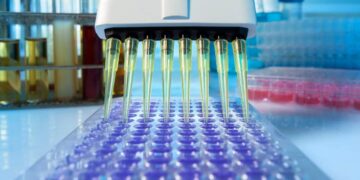
Biologics Analytical Testing Services
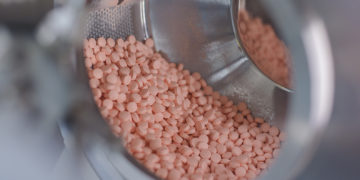
Outsourcing Analytical Testing For Biologics – A CRO’s…
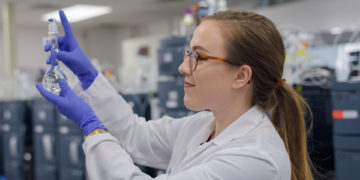
CMC GMP Analytical Testing for Biologics
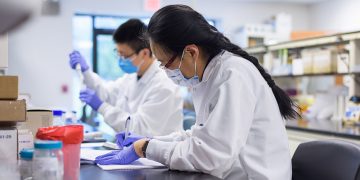
Bioanalytical Large Molecule / Biologics Services

